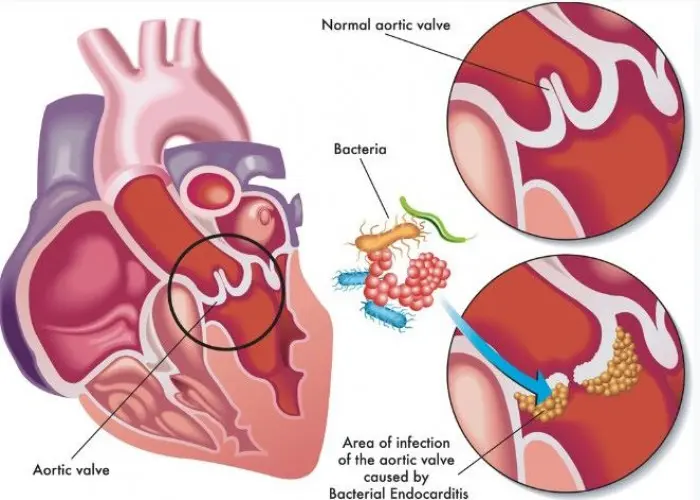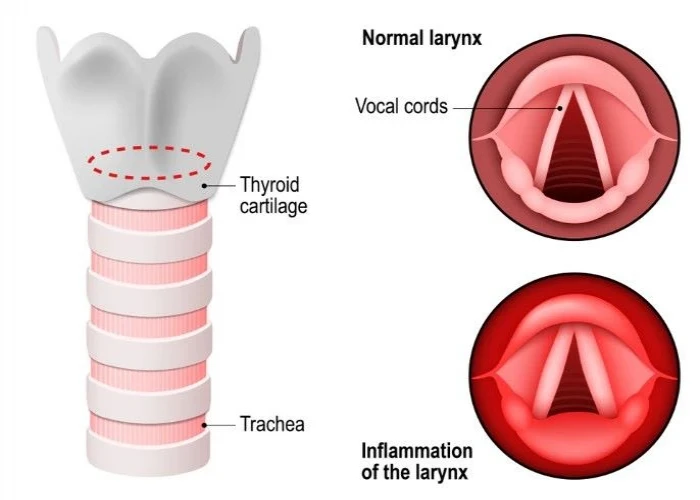 Welcome
Welcome
“May all be happy, may all be healed, may all be at peace and may no one ever suffer."
Laryngitis

Laryngitis is an inflammation of the larynx, which is the voice box located at the top of the trachea (windpipe) in the neck. It is often caused by a viral or bacterial infection, but can also be caused by overuse or strain of the vocal cords, irritants such as smoke or air pollution, allergies, or gastroesophageal reflux disease (GERD).
Symptoms of laryngitis may include:
- Hoarseness or loss of voice
- Sore throat
- Dry or tickling sensation in the throat
- Cough
- Difficulty swallowing
- Swollen lymph nodes in the neck
Treatment for laryngitis depends on the underlying cause. In most cases, laryngitis is caused by a viral infection and will resolve on its own within a week or two with rest and hydration. Antibiotics are not effective for viral infections, but may be prescribed for bacterial infections.
Other treatments for laryngitis may include:
- Resting the voice by avoiding talking or singing
- Drinking plenty of fluids to stay hydrated
- Using a humidifier or steam inhalation to moisten the air and soothe the throat
- Avoiding irritants such as smoke or air pollution
- Over-the-counter pain relievers such as acetaminophen or ibuprofen to relieve pain and inflammation
In some cases, laryngitis may persist or recur, which may require further evaluation by a healthcare provider. If symptoms persist for more than two weeks, or if there is difficulty breathing, severe pain, or difficulty swallowing, it is important to seek medical attention.
Research Papers
Disease Signs and Symptoms
- Hoarseness
- Weak voice or voice loss
- Sore throat
- Dry throat
- Dry cough
- Blood with cough
- Fever
Disease Causes
Laryngitis
Acute laryngitis
Most cases of laryngitis are temporary and improve after the underlying cause gets better. Causes of acute laryngitis include:
- Viral infections similar to those that cause a cold
- Vocal strain, caused by yelling or overusing your voice
- Bacterial infections, although these are less common
Chronic laryngitis
Laryngitis that lasts longer than three weeks is known as chronic laryngitis. This type of laryngitis is generally caused by exposure to irritants over time. Chronic laryngitis can cause vocal cord strain and injuries or growths on the vocal cords (polyps or nodules). Chronic laryngitis can be caused by:
- Inhaled irritants, such as chemical fumes, allergens or smoke
- Acid reflux, also called gastroesophageal reflux disease (GERD)
- Chronic sinusitis
- Excessive alcohol use
- Habitual overuse of your voice (such as in singers or cheerleaders)
- Smoking
Less common causes of chronic laryngitis include:
- Bacterial or fungal infections
- Infections with certain parasites
Other causes of chronic hoarseness include:
- Cancer
- Vocal cord paralysis, which can result from nerve injury due to surgery, injury to the chest or neck, cancer, nerve disorders, or other health conditions
- Bowing of the vocal cords
Disease Prevents
Laryngitis
To prevent dryness or irritation to your vocal cords:
- Avoid smoking and stay away from secondhand smoke. Smoke dries your throat. It can also cause your vocal cords to become irritated.
- Limit alcohol and caffeine. These cause you to lose total body water.
- Drink plenty of water. Fluids help keep the mucus in your throat thin and easy to clear.
- Keep spicy foods out of your diet. Spicy foods can cause stomach acid to go into the throat or esophagus. This can lead to heartburn or gastroesophageal reflux disease (GERD).
- Include a variety of healthy foods in your diet. Eat fruits, vegetables and whole grains. These have several vitamins, such as vitamins A, E and C, that are important for overall health. These foods can also help keep the mucous membranes in the throat healthy.
- Avoid clearing your throat. This does more harm than good, because it causes an abnormal vibration of your vocal cords and can increase swelling. Clearing your throat also causes your throat to secrete more mucus and feel more irritated, making you want to clear your throat again.
- Avoid upper respiratory infections. Wash your hands often, and avoid contact with people who have upper respiratory infections such as colds.
Disease Treatments
Acute laryngitis often gets better on its own within a week or so. Self-care measures, such as voice rest, drinking fluids and humidifying your air, also can help improve symptoms.
Chronic laryngitis treatments are aimed at treating the underlying causes, such as heartburn, smoking or excessive use of alcohol.
Medications used in some cases include:
- Antibiotics. In almost all cases of laryngitis, an antibiotic won't do any good because the cause is usually viral. But if you have a bacterial infection, your doctor may recommend an antibiotic.
- Corticosteroids. Sometimes, corticosteroids can help reduce vocal cord inflammation. However, this treatment is used only when there's an urgent need to treat laryngitis — such as in some cases when a toddler has laryngitis associated with croup.
You may also have voice therapy to learn to lessen behaviors that worsen your voice.
In some cases, you may need surgery.
Disease Diagnoses
Disease Allopathic Generics
-
Amoxicillin Trihydrate
1 capsule 3 times a day.
-
Doxycycline Hydrochloride
1 capsule 2 times 7/10 days.
-
Cephalexin
1 or 1/2 teaspoon after 8 hours for 7 days.
-
Cephradine
1 or 1/2 teaspoon after 6/8 hours.
-
Erythromycin (Oral)
1 or 1/2 teaspoon after 6/8 hours for 5/7 days.
-
Ciprofloxacin
1 each 2 times a day for 7 days.
-
Pefloxacin Mesylate Dihydrate
1 each 2 times a day for 7 days.
-
Azithromycin Dihydrate
1 or 1 teaspoon 1 time daily for 5 days.
-
Chlorpheniramine Maleate
1 pill 3 times a day.
-
Promethazine Hydrochloride
1/2 teaspoon 3 times a day.
-
Pheniramine Maleate
1 tablet 3 times a day or 1 tablet of 75 mg at night.
-
Levocetirizine Dihydrochloride
1 pill daily.
-
Loratadine
1 pill daily.
- Methyl Salicylate + Menthol
-
Pseudoephedrine + Guaiphenasine + Triprolidine
2 spoons 3 times a day for 7-10 days.
-
Ferrous Sulfate
1/2 teaspoon 3 times a day after meals.
-
Vitamin B complex
1-4 spoons 3 times a day after meals.
Disease Ayurvedic Generics
Disease Homeopathic Generics
Disease yoga
Laryngitis and Learn More about Diseases

Mental illness

Endocarditis

Morning sickness

Bradycardia

Encopresis

Primary ovarian insufficiency

Growing pains

Encephalitis
laryngitis, কণ্ঠনালী প্রদাহ
To be happy, beautiful, healthy, wealthy, hale and long-lived stay with DM3S.
